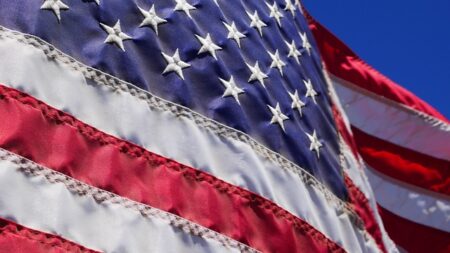Flag Day, observed annually on June 14th in the United States, commemorates the adoption of the American flag. The origins of Flag Day can be traced back to 1777, when the Second Continental Congress passed a resolution on June 14th, officially adopting the Stars and Stripes as the national flag. This resolution declared, “Resolved, That the flag of the United States be thirteen stripes, alternate red and white; that the union be thirteen stars, white in a blue field, representing a new constellation.”
Early Flag Day Celebrations
The idea of an annual celebration to honor the flag gained traction over a century later. One of the earliest known observances of Flag Day was in 1885, when Bernard J. Cigrand, a schoolteacher in Waubeka, Wisconsin, held a flag birthday for his students. Cigrand, an ardent advocate for the flag and its history, spent decades promoting the idea of a national Flag Day.
Parallel to Cigrand’s efforts, other celebrations were emerging. In 1889, George Bolch, a principal of a free kindergarten for poor children in New York City, organized ceremonies for the flag’s anniversary. Additionally, in 1891, the Betsy Ross House in Philadelphia held a Flag Day celebration. By 1894, the state of New York had declared June 14th as Flag Day, and observances were being held in public schools across the state.
Into the 20th Century
Flag Day gained further recognition when the Benevolent and Protective Order of Elks, a fraternal organization, endorsed it as an annual event. Their support helped to spread awareness and participation. In 1916, President Woodrow Wilson issued a proclamation establishing June 14th as Flag Day. He envisioned it as a day to honor the flag and its significance in American history and to encourage patriotism among citizens.
Congressional Recognition
However, it was not until 1949 that Flag Day was officially recognized by Congress. President Harry S. Truman signed an Act of Congress designating June 14th of each year as National Flag Day. Despite this federal recognition, Flag Day is not a federal holiday, and businesses and schools typically remain open.
Celebrations
Local celebrations and events mark Flag Day across the United States. Parades, ceremonies, and educational programs are common, fostering a sense of national pride and historical awareness. The day serves as a reminder of the flag’s symbolism, representing the values of liberty, justice, and freedom that are foundational to the United States.
Enduring Importance
Flag Day’s journey from a teacher’s initiative to a nationally recognized day illustrates the enduring importance of the American flag in the nation’s identity and heritage. It continues to be a day of reflection, celebration, and education about the flag’s history and its place in American culture.

